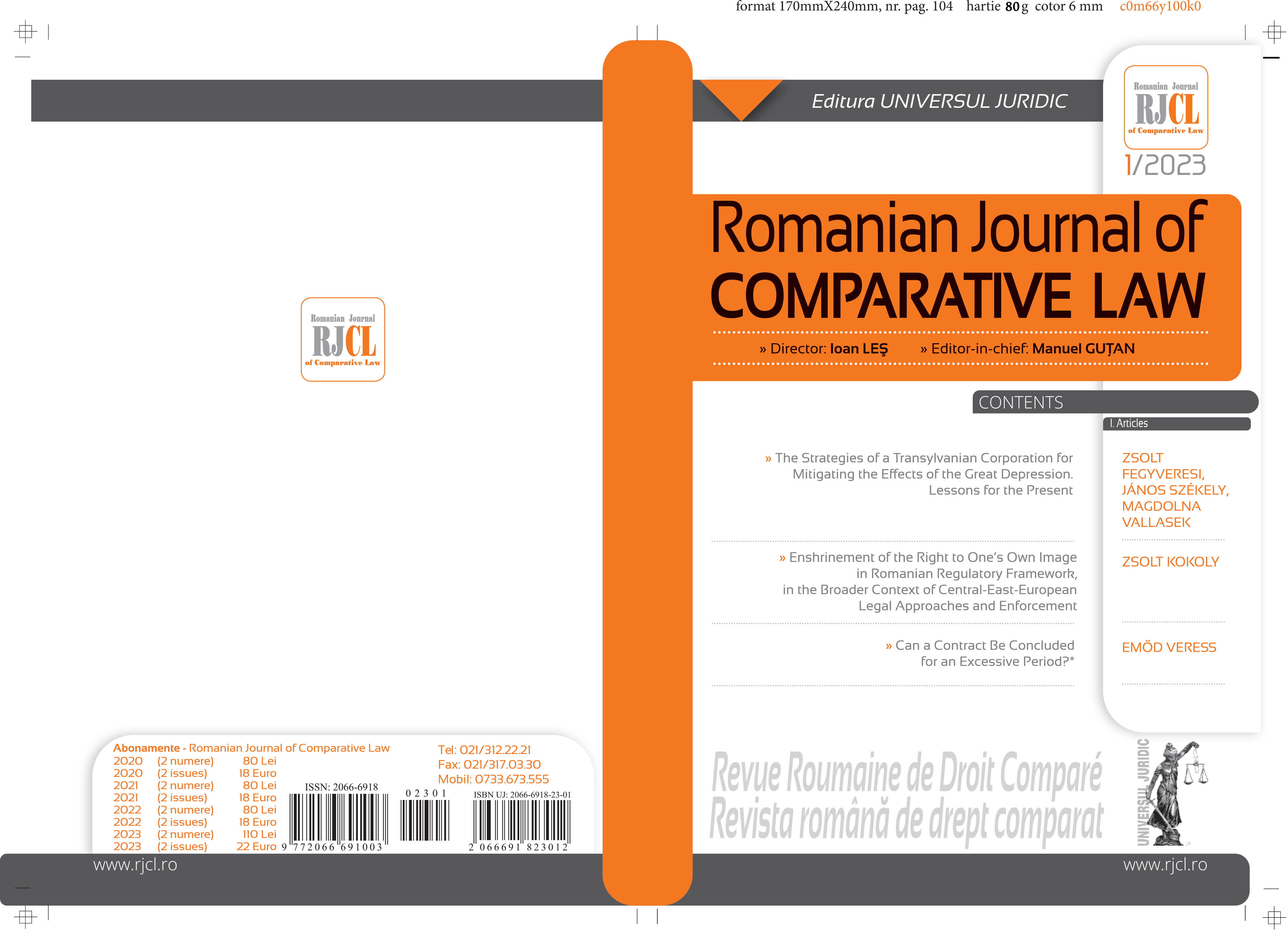Can a Contract Be Concluded for an Excessive Period?
Can a Contract Be Concluded for an Excessive Period?
Author(s): Emőd VeressSubject(s): Law, Constitution, Jurisprudence, Civil Law
Published by: Universul Juridic
Keywords: contract duration; freedom of contract; excessive duration; good morals; nullity;
Summary/Abstract: The legal limitation of the duration of contracts is exceptional since the parties enter into contracts freely according to their interests, which is also valid for determining the duration of agreements. Contracts can be concluded for an indefinite or a fixed term, and in the case of an indefinite contract, the parties can agree on a more extended notice period, e.g., one year, which gives the contract a greater degree of stability. However, the central question of the analysis is whether a fixed‐term contract can be concluded for an ʺexcessively longʺ period. If so, what is the applicable sanction, and what is the legal basis for judicial intervention in such contracts? Particular problems are considered, such as judicial reduction of the duration of the contract or the idea that a contract concluded for a perpetual or excessive period may be contrary to good morals and, therefore, void because it disproportionately restricts the freedom of the contracting party. This nullity is, however, partial, affecting only the clause that fixed the duration of the contract, the legal act in question having a continuing effect, most likely as a contract concluded for an indefinite period (but we are also considering alternative interpretations). The arguments are also based on comparative law research and an analysis of judicial practice.
Journal: Revista Română de Drept Comparat
- Issue Year: 2023
- Issue No: 01
- Page Range: 72-87
- Page Count: 16
- Language: English
- Content File-PDF

